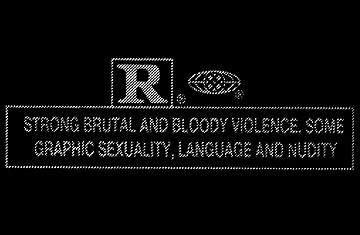
The movie ratings system turns 40 on Nov. 1
G, PG, PG-13, R, X, NC-17. For a bunch of numbers and letters, the American movie rating system sure has a way of inviting controversy. On Nov. 1, it turns 40 years old. Dan Glickman, chairman and CEO of the Motion Picture Association of America, and Joan Graves, Chairman of the Classification and Ratings Administration, spoke to TIME about ratings history, drugs in movies, and the unfairly maligned 'NC-17.'
The Classification and Ratings Administration (CARA) is 40-years old. What was in place prior to the ratings system?
Glickman: Before Jack Valenti, my predecessor, created this system, there were a hodgepodge of ratings boards, some governmental, some not. It created confusion for filmmakers and audiences and was basically tantamount to censorship, since these boards laid out certain behaviors that could and could not occur in a movie whatsoever. Jack determined that we needed to put some order and structure to this system to give parents some predictability. He felt, rightly so, that the prime purpose of ratings were to give parents information about movies.
Graves: In 1968, there were over 45 censor boards, many of which were religious, across the country. Filmmakers were having to send their products to at least 45 different communities and then have to make adjustments so that their films could then be displayed.
How many movies are rated every year?
Graves: We rate between 840-940 a year, but some of those are straight-to-video releases.
What are the biggest misunderstandings that people have about the ratings system?
Glickman: Some people still see this as a censorship board. It's not. It's an information system. It's actually designed to keep censors at bay. Some people think we're too easy on sex and nudity, some people think we're too easy on violence. But, to some extent, this is an art, not a science.
Graves: There still exists a misunderstanding about how "secret" we are. We keep our raters' names anonymous because we don't want them to be pressured by the studios, by activist groups, by anything or anyone.
You've often said that the group is supposed to "reflect standards, not set standards." How have American sensibilities, and therefore ratings standards, changed in the past 40 years?
Graves: Take the drug issue. It was much more leniently rated some decades ago than it is now because parents realize that drugs have a much more serious place in their children's lives. In the 60s and 70s, drugs appeared to be more of a fun, temporary thing. So drugs are rated harsher now.
Glickman: You have some movies today that get a 'PG-13' or 'R' ratings that 40 years ago probably wouldn't have even been made. Movies like Wedding Crashers or Knocked Up, or these other hard 'R' comedies that are out there. They reflect how society has changed, what standards it accepts.
Are we seeing more and more envelope pushing when it comes to violence?
Glickman: This subject comes up a lot with European colleagues, who look at our ratings system and say, "Oh, you're too restrictive on sexuality, but you allow so much violence." First of all, I'm not 100 percent sure that's true. But I do think that the American culture is one that historically has been more tolerant of violence than sexuality in entertainment.
Graves: Interestingly, different elements are more important in different regions. Violence is an issue on the coasts, because they have more urban areas and are more concerned about it. In the south, they care much more about language. And the first thing they're concerned about in the Midwest is sexuality.
The rating that seems to get the most press is the 'NC-17,' for obvious reasons. Is there a way to detoxify that rating, which seems to imply pornography where pornography doesn't exist?
Glickman:First of all, it's a legitimate rating. It's not pornography. It's a movie for adult, not for kids. Frankly, we wish more filmmakers would use the rating. One of the things we've talked to them about is not to shy away from the rating if they think the subject matter is worth it. It's been said that theaters won't play the movies, but most will.
Graves: You asked earlier about misunderstandings. I think this is the greatest one. We give far more initial 'NC-17's for violence than we ever do for sex. But what happens is, those films don't go to the press. They just edit it until they get to the top end of 'R.' Anybody who gets an 'NC-17' for sex, though, goes immediately to the press because they love the publicity. Somehow it's not as sexy to get it for violence. I know it's a matter of economics. Filmmakers don't want to limit their audiences in terms of the number of people that can buy tickets. But I'd like to see nothing more than an appealing director make a very good film that goes out with an 'NC-17' like Ang Lee did with Lust, Caution. Then again, that was a foreign language film, so it didn't appeal to as many people as an English language film would.
I don't really see Steven Spielberg going out and making an 'NC-17' epic anytime soon.
Graves: No, but wouldn't it be great if someone like him did? It would really help the rating.
